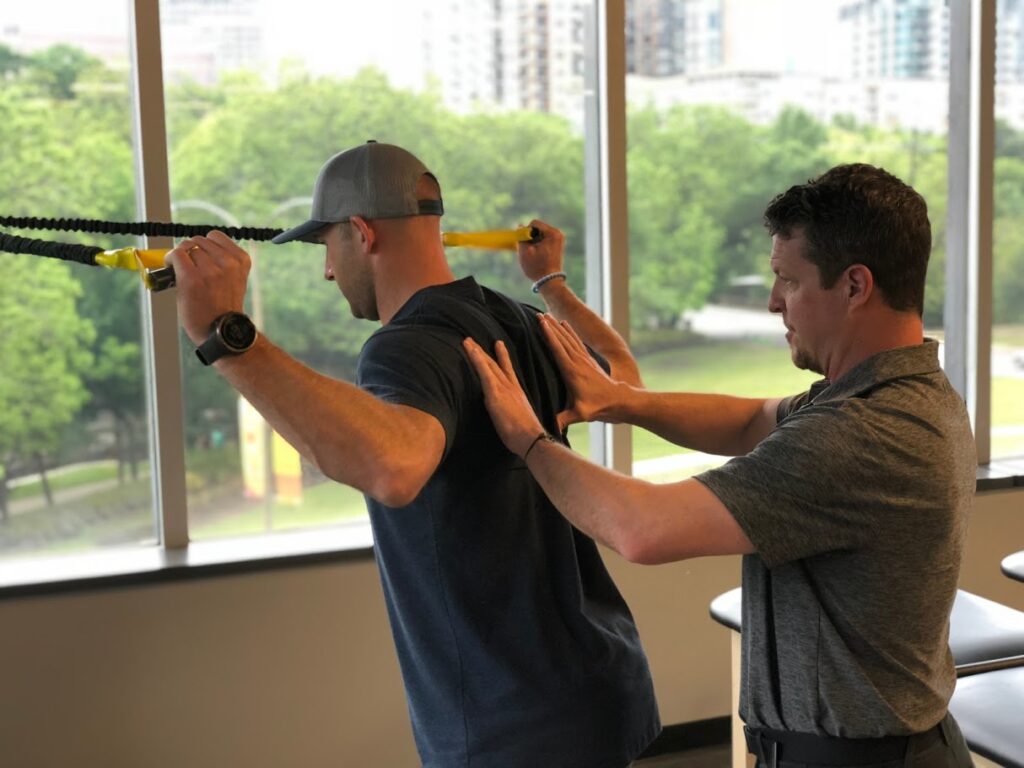IFPA Kettlebell Training Specialist Certification Review (2025)
Read this IFPA Kettlebell Training Specialist Certification Review to decide if the IFPA Kettlebell Certification is worth it and what the best personal training certification is for you.

In the fitness industry, there are countless certifications available for aspiring professionals to choose from. One of the best kettlebell certifications that have gained recognition and popularity among fitness enthusiasts is the IFPA Kettlebell Training Specialist Certification. This article will provide an in-depth review of the IFPA Kettlebell Training Certification, covering its purpose, requirements, curriculum, and the benefits of obtaining it.
Discover the comprehensive review of the IFPA Kettlebell Training Specialist Certification. Whether you want to learn how to find the best kettlebell certification, how to become a personal trainer, or learn how to become a fitness influencer, or learn how to open a gym, or learn how to start a fitness business, or anything in between, use the Exercise.com platform to accomplish your fitness business goals.

You can start an online personal training business, make a fitness app, learn how to make money selling workout plans online, put in-person personal training marketing ideas into action, use personal training income ideas to find personal trainer career options that will put you on track for the highest paying fitness jobs, and many other ways to make money from fitness doing what you love. Whether that includes exploring the best Russian kettlebell certification or the best group fitness certification.
With the Exercise.com platform you have the best online fitness coaching software and the best software for fitness influencers all in one! (Not to mention the best gym software and the best personal training software).
Create workout plans.

Manage clients.

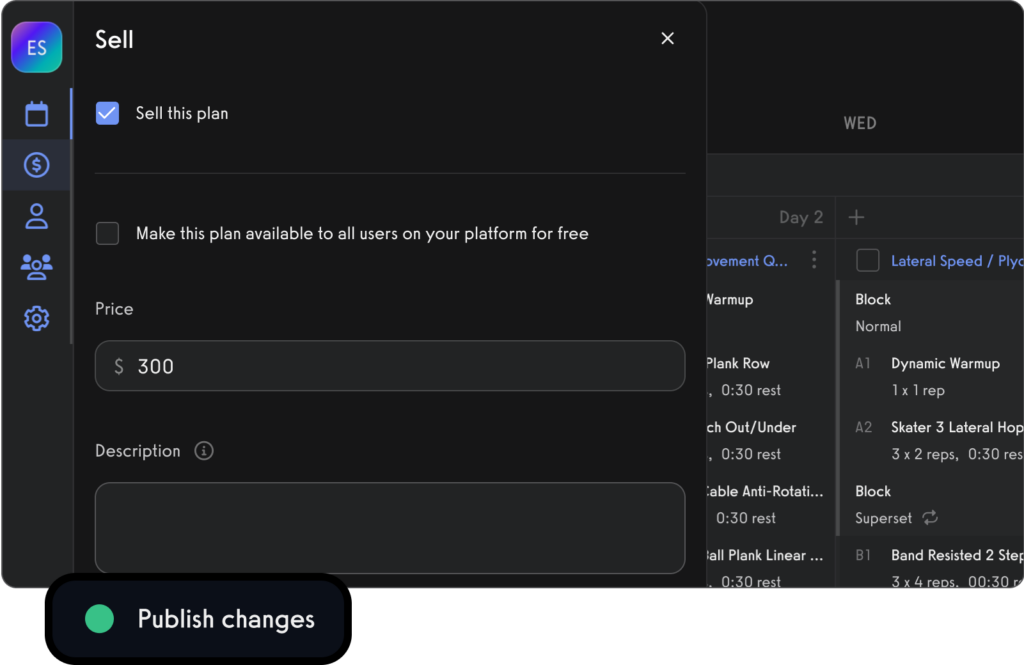
Run online fitness challenges.
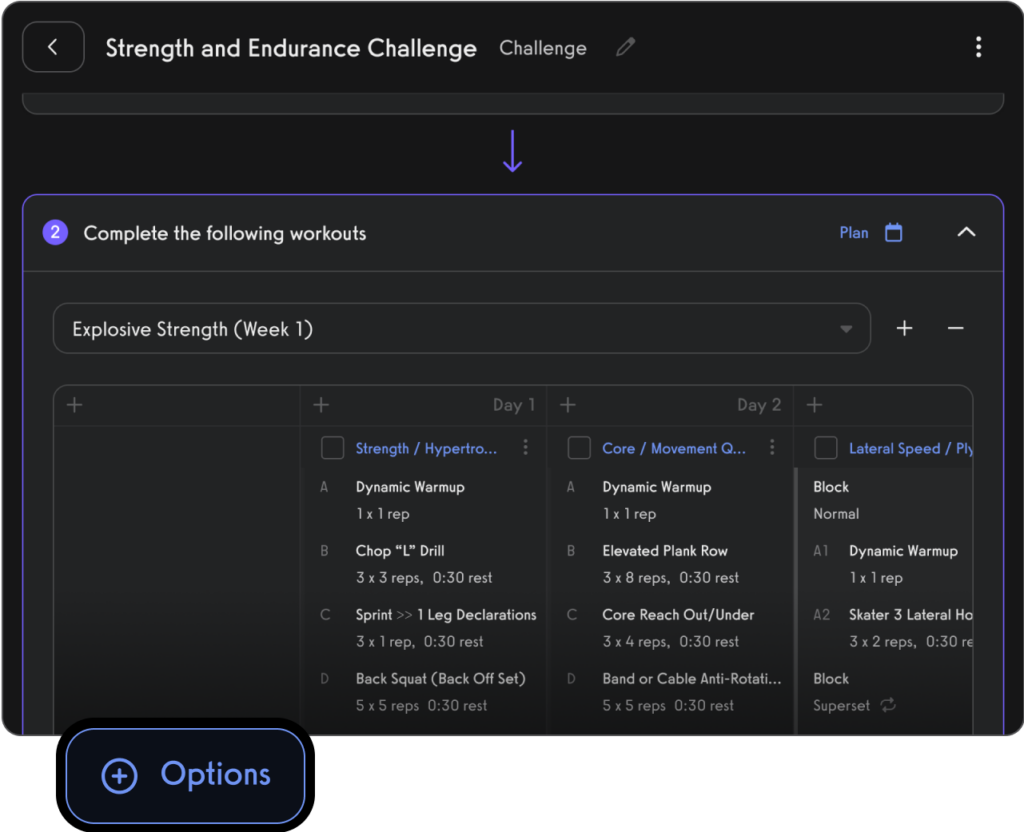
Create and sell fitness memberships, products, and digital offers.

Manage, message, and market to your online personal training clients and leads.

All from your very own custom branded fitness apps.

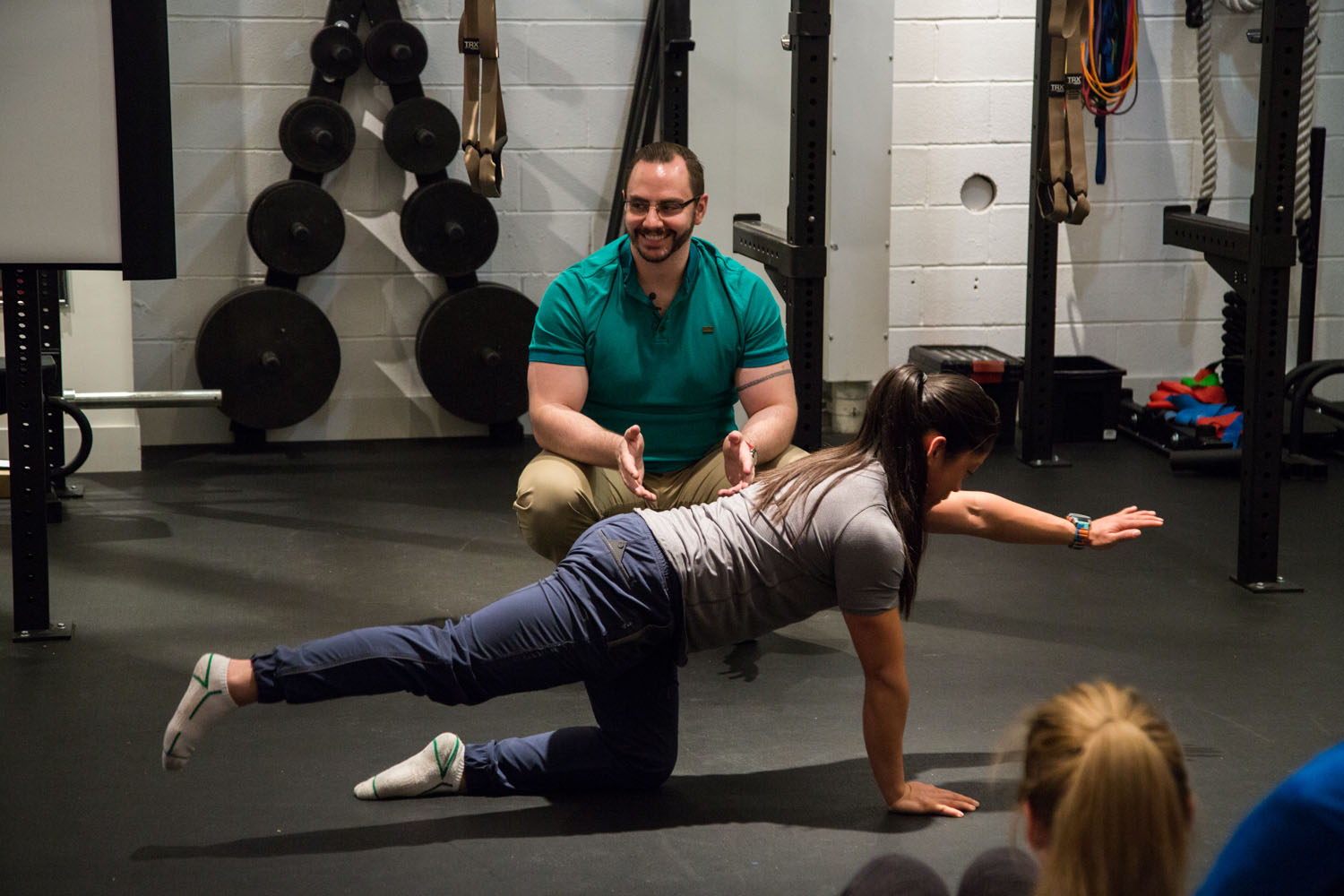
IFPA Kettlebell Training Specialist Certification
The IFPA Kettlebell Training Specialist Certification is a comprehensive program designed to equip fitness professionals with the knowledge and skills needed to effectively train individuals using kettlebells. Kettlebell training has become increasingly popular in recent years due to its ability to improve strength, endurance, and overall fitness levels.
IFPA Kettlebell Training Specialist Certification Review
IFPA Kettlebell Training Specialist General Information
The IFPA Kettlebell Training Specialist Certification is tailored for fitness professionals eager to deepen their expertise in kettlebell training, a versatile and effective strength and conditioning modality. This certification, provided by the International Fitness Professionals Association (IFPA), covers the comprehensive understanding and application of kettlebell exercises, including proper form, technique, program design, and safety considerations.
- Ideal for personal trainers, strength and conditioning coaches, and group fitness instructors aiming to integrate kettlebell exercises into their training repertoire.
- The curriculum delves into the biomechanics of kettlebell movements, the physiological benefits of kettlebell training, and progressive program design to meet a variety of fitness goals.
- Participants will undergo a blend of theoretical learning and practical application, facilitated through detailed study materials, hands-on workshops, and a certification exam, ensuring proficiency in kettlebell training techniques.
- Graduates are equipped to design and implement kettlebell training programs that enhance strength, power, endurance, and mobility for clients, contributing to improved overall fitness and performance.
IFPA Credibility and Reputation
The IFPA is recognized for its high standards in fitness education and certifications, and the Kettlebell Training Specialist Certification upholds this tradition of excellence, ensuring certified professionals are acknowledged as skilled kettlebell trainers.
- Renowned for its evidence-based curriculum and commitment to continuing professional development.
- The certification is well-regarded across the fitness industry, enhancing the professional standing and opportunities for certified instructors in various training environments.
- IFPA provides continuous support, including access to further education and a network of fitness professionals, promoting an environment of lifelong learning and mastery in kettlebell training.
Achieving the IFPA Kettlebell Training Specialist Certification signifies a professional’s expertise in kettlebell training, setting them apart as qualified trainers capable of delivering safe, effective, and innovative kettlebell workouts.
IFPA vs Other Top Kettlebell Training Certifications
Comparing the IFPA Kettlebell Training Specialist Certification to other leading kettlebell training programs is essential to understand the unique features, focus areas, and applicability of each:
- IFPA Kettlebell Training Specialist: Offers a comprehensive exploration of kettlebell training, focusing on a wide range of techniques, safety protocols, and program design principles suitable for clients of varying fitness levels.
- StrongFirst Kettlebell Certification: Emphasizes the traditional Russian kettlebell training techniques, with a strong focus on form, technique, and the development of strength and endurance.
- RKC (Russian Kettlebell Challenge) Certification: Focuses on high-intensity kettlebell training with an emphasis on strength, conditioning, and functional movement patterns.
- IFPA’s certification provides a broad and in-depth curriculum that prepares trainers for a wide array of kettlebell training applications, making it a versatile choice for fitness professionals.
- Certified professionals benefit from IFPA’s comprehensive educational resources and professional development opportunities, ensuring they are equipped to lead successful kettlebell training sessions.
- The certification empowers fitness professionals to create and deliver kettlebell training programs that improve functional strength, cardiovascular fitness, and dynamic movement capabilities, meeting the diverse needs of clients.
Selecting the right kettlebell training certification depends on your career goals, training philosophy, and the specific needs of your clientele. The IFPA certification offers a focused yet comprehensive approach to kettlebell training, making it an excellent choice for fitness professionals seeking to specialize in this effective training modality.
Integrating kettlebell training services with the best personal training software can significantly enhance a fitness professional’s ability to manage client programs, monitor progress, and optimize training outcomes, ensuring high-quality and effective kettlebell training experiences.
IFPA Cost
The investment in the IFPA Kettlebell Training Specialist Certification reflects the specialized nature of the training and the professional value it offers to fitness professionals. The cost includes access to detailed study materials, hands-on workshops, and the certification examination.
- The program fee covers comprehensive training materials and workshops designed to provide a thorough understanding of kettlebell training principles and their practical application.
- Opportunities for early registration discounts or bundle pricing with other IFPA certifications may be available, offering additional value to the investment.
- The expertise gained through this certification can lead to enhanced career opportunities and income potential in the fitness industry, particularly for those specializing in kettlebell training.
While the cost may be a significant consideration, the professional development and specialization provided by the IFPA Kettlebell Training Specialist Certification justify the investment for fitness professionals committed to mastering kettlebell training methodologies and delivering high-quality, effective training programs.
IFPA Kettlebell Training Specialist Exam Content
The IFPA Kettlebell Training Specialist Certification exam is designed to comprehensively assess a candidate’s understanding of kettlebell training principles, including technique, safety, program design, and the application of kettlebell exercises to achieve various fitness goals. Key areas covered in the exam include:
Kettlebell Technique and Mechanics
- Detailed knowledge of the mechanics of common kettlebell lifts such as the swing, snatch, clean, and Turkish get-up, including proper form and execution to maximize effectiveness and minimize injury risk.
- Understanding the biomechanical principles underlying kettlebell movements and how to adjust techniques for different body types and fitness levels.
Safety and Risk Management
- Proficiency in identifying and mitigating common risks associated with kettlebell training, including proper warm-up strategies, exercise progression, and client monitoring to ensure a safe training environment.
- Knowledge of contraindications for kettlebell training and how to modify exercises for individuals with specific limitations or health concerns.
Program Design and Periodization
- Skills in developing comprehensive kettlebell training programs that incorporate periodization principles to meet clients’ strength, endurance, mobility, and weight management goals.
- Ability to tailor kettlebell workouts to various populations, from beginners to advanced athletes, ensuring programs are challenging yet accessible.
Successfully passing the certification exam demonstrates a fitness professional’s expertise in kettlebell training, equipping them with the credentials to design and implement safe, effective, and personalized kettlebell training programs.
IFPA Kettlebell Training Specialist Continuing Education and Recertification
To maintain the IFPA Kettlebell Training Specialist Certification, certified professionals are required to engage in ongoing professional development, ensuring they remain current with the latest advancements in kettlebell training:
- Continuing Education Units (CEUs): Certified specialists must accumulate a specified number of CEUs focused on kettlebell training, fitness trends, or related disciplines within each recertification cycle.
- Advanced Learning Opportunities: IFPA offers a range of advanced courses, workshops, and seminars that delve deeper into kettlebell training techniques and related fitness areas, providing avenues for specialists to further refine their expertise.
- Professional Commitment: Recertification and continuous education reflect a specialist’s dedication to their professional development and to delivering the highest quality kettlebell training services.
Engaging in continuous professional development is essential for kettlebell training specialists to enhance their expertise, adapt to emerging research and methodologies, and uphold the highest standards of practice in delivering effective and innovative kettlebell training programs.
Other IFPA Offerings
Besides the Kettlebell Training Specialist Certification, IFPA offers a broad spectrum of fitness certifications and educational opportunities that can complement a specialist’s expertise in kettlebell training:
- Specialty Certifications: Such as the Functional Trainer Specialist or Strength and Conditioning Specialist, allowing kettlebell training specialists to incorporate specialized training approaches into their programs.
- Health and Wellness Certifications: Including the Nutrition Coach Certification or Wellness Coach Certification, equipping trainers with a holistic view of health and wellness to support their kettlebell training programs.
- Continuing Education Courses: Covering a variety of topics from the latest kettlebell training techniques to holistic fitness approaches, supporting specialists in their ongoing professional development and innovation in training.
Exploring additional certifications and courses can enrich a kettlebell training specialist’s practice, offering a comprehensive approach to fitness that incorporates the latest scientific insights and methodologies in kettlebell training and beyond.
IFPA Kettlebell Training Specialist Certification Overall Rating
The IFPA Kettlebell Training Specialist Certification is a standout program for fitness professionals looking to specialize in kettlebell training. It provides an in-depth exploration of kettlebell techniques, safety protocols, program design, and the practical application of kettlebell exercises to enhance strength, power, endurance, and mobility.
Pros
- Comprehensive training in kettlebell techniques and program design enhances specialists’ ability to implement effective and personalized kettlebell training programs.
- The credibility of an IFPA certification enhances professional opportunities and recognition within the fitness and wellness industries, distinguishing certified specialists as experts in kettlebell training.
- Access to ongoing educational resources and a supportive professional community fosters continuous learning and career development, ensuring specialists remain at the forefront of kettlebell training practices.
Cons
- The certification requires a significant investment of time and financial resources, but the specialized expertise and professional benefits gained justify the cost and contribute to a specialist’s growth and success in the field.
- The focused nature of kettlebell training may necessitate additional certifications or qualifications to comprehensively address a broad range of fitness disciplines and client needs.
Overall, the IFPA Kettlebell Training Specialist Certification is highly recommended for fitness professionals seeking to master kettlebell training. It provides the advanced knowledge, skills, and credentials necessary to design and lead effective kettlebell training programs, improving functional strength, cardiovascular fitness, and overall athletic performance for clients seeking efficient and dynamic workouts.
Integrating kettlebell training services with the best personal training software can further enhance a specialist’s ability to manage
client programs, track progress, and deliver tailored kettlebell training plans, ensuring a high-quality and personalized training experience for clients looking to benefit from this versatile and effective training modality.
History of Kettlebell Training
Kettlebell training is a form of exercise that originated in Russia in the 18th century. It involves using a cast-iron weight with a handle attached to perform various movements, such as swings, snatches, and cleans. These exercises engage multiple muscle groups simultaneously, making them highly efficient for building strength and burning calories.
The IFPA Kettlebell Training Specialist Certification goes beyond simply teaching trainers how to use kettlebells. It provides a comprehensive understanding of the biomechanics and principles behind kettlebell training, enabling trainers to design safe and effective programs tailored to their clients’ specific needs and goals.
The history and background of the IFPA Kettlebell Training Specialist Certification
The IFPA, International Fitness Professionals Association, is a globally recognized organization that offers various certifications in the fitness industry. The Kettlebell Training Specialist Certification was developed by a team of experienced professionals who recognized the need for a standardized program to educate trainers in the proper techniques and methodologies of kettlebell training.
The origins of kettlebell training can be traced back to the Russian military, where it was used to build strength and endurance in soldiers. Over time, kettlebell training gained popularity in the fitness world, and its benefits became widely recognized. The IFPA saw the growing demand for qualified kettlebell trainers and developed the Kettlebell Training Specialist Certification to meet this need.
This certification was created with the goal of ensuring that fitness professionals have the knowledge and skills necessary to provide safe and effective kettlebell training to their clients. It covers a wide range of topics, including proper form and technique, program design, injury prevention, and client assessment.
The benefits of becoming an IFPA Kettlebell Training Specialist
Obtaining the IFPA Kettlebell Training Specialist Certification can be highly advantageous for fitness professionals in numerous ways. Some of the key benefits include:
- Enhanced credibility and professional recognition: The IFPA is a well-respected organization in the fitness industry, and holding their Kettlebell Training Specialist Certification can significantly boost a trainer’s credibility and reputation.
- Expanded career opportunities and earning potential: With the increasing popularity of kettlebell training, there is a growing demand for qualified trainers. By becoming certified, fitness professionals can open doors to new career opportunities and potentially increase their earning potential.
- Access to a network of fellow certified professionals: The IFPA offers a community of like-minded professionals who have also obtained the Kettlebell Training Specialist Certification. This network can provide valuable support, collaboration, and ongoing education.
By becoming certified, fitness professionals can differentiate themselves from their peers and demonstrate their commitment to providing high-quality training to their clients. The IFPA Kettlebell Training Specialist Certification serves as a mark of excellence in the field of kettlebell training, setting trainers apart as experts in their craft.
Requirements for the IFPA Kettlebell Training Specialist Certification
In order to pursue the IFPA Kettlebell Training Specialist Certification, there are certain prerequisites and requirements that need to be met:
Prerequisites for the certification
Before enrolling in the certification program, individuals must hold a valid personal training certification from a recognized organization. This ensures that candidates have a solid foundation in basic exercise science principles and training methodologies.
Having a personal training certification is essential because it shows that candidates have already undergone training in fitness and exercise science. This foundation is crucial for understanding the more advanced concepts and techniques specific to kettlebell training.
By requiring a personal training certification, the IFPA ensures that candidates have a good understanding of anatomy, physiology, and exercise programming. This knowledge is vital for designing effective kettlebell training programs and ensuring the safety of clients.
Training and education requirements
The IFPA requires candidates to complete a comprehensive training program that covers the fundamentals of kettlebell training. This program may be offered through live workshops, online courses, or a combination of both.
During the training program, candidates will learn about the history and origin of kettlebell training, as well as the different types of kettlebells and their uses. They will also be introduced to various kettlebell exercises and techniques, such as swings, snatches, cleans, and presses.
Proper technique is emphasized throughout the training program, as it is crucial for maximizing results and minimizing the risk of injury. Candidates will learn how to perform each exercise with correct form and alignment, ensuring that they can effectively teach their clients and provide them with the best possible instruction.
Program design is another important aspect of the training program. Candidates will learn how to create well-rounded kettlebell workouts that target different muscle groups and achieve specific fitness goals. They will also gain knowledge on how to modify exercises and programs to suit different fitness levels and individual needs.
Safety considerations are given significant attention during the training program. Candidates will learn about common kettlebell training injuries and how to prevent them. They will also be taught how to properly warm up and cool down, as well as how to spot and correct common form mistakes.
Exam and assessment process
To demonstrate proficiency in kettlebell training, candidates must pass a written exam and practical assessment.
The written exam tests their knowledge of kettlebell training principles and concepts. Candidates will be asked questions about the benefits of kettlebell training, the different muscle groups targeted by specific exercises, and the proper progressions for clients of various fitness levels. They will also be tested on their understanding of safety guidelines and program design.
The practical assessment evaluates candidates’ ability to perform and teach various kettlebell exercises with proper form and technique. Candidates will be required to demonstrate exercises such as swings, snatches, cleans, and presses, showing that they can execute them correctly and effectively. They will also be assessed on their coaching and instructional skills, ensuring that they can communicate and demonstrate exercises to clients in a clear and concise manner.
The exam and assessment process is designed to ensure that candidates have a comprehensive understanding of kettlebell training and are capable of applying that knowledge in a practical setting. By passing both components, candidates demonstrate their readiness to become IFPA Kettlebell Training Specialists.
IFPA Kettlebell Training Specialist Certification Content
The IFPA Kettlebell Training Specialist Certification covers a wide range of topics, ensuring that candidates are well-rounded and equipped to deliver effective kettlebell training programs. Some of the key areas covered in the curriculum include:
Overview of the curriculum and topics covered
The curriculum provides a comprehensive introduction to kettlebell training, including the history and development of kettlebells, their benefits, and the science behind their effectiveness.
Kettlebell training has a rich history that dates back centuries. Originating in Russia, kettlebells were initially used as counterweights in markets. Over time, people realized that these weights could be used for strength and conditioning exercises. This realization led to the development of specific kettlebell training techniques and exercises that are still used today.
The benefits of kettlebell training are numerous. Not only does it improve strength and power, but it also enhances cardiovascular fitness and promotes fat loss. The unique shape and design of kettlebells allow for dynamic movements that engage multiple muscle groups simultaneously, making it a highly efficient form of exercise.
Understanding the science behind kettlebell training is crucial for effective programming. The curriculum dives into the physiological responses and adaptations that occur during kettlebell training. Candidates learn about muscle activation, energy systems, and the metabolic demands of different exercises.
In addition, candidates learn about the different types of kettlebell exercises and how to properly perform them. The curriculum covers foundational movements such as swings, cleans, presses, snatches, and Turkish get-ups. These exercises target various muscle groups and provide a full-body workout.
Proper form and technique are emphasized throughout the certification program. Candidates learn the correct body positioning, grip, and breathing techniques for each exercise. They also gain an understanding of common mistakes and how to correct them to prevent injuries and maximize results.
Program design is another important aspect covered in the curriculum. Candidates learn how to create effective kettlebell training programs that cater to different fitness levels and goals. They learn how to structure workouts, incorporate progressions, and modify exercises to meet the needs of individual clients.
In-depth analysis of the kettlebell training techniques taught
The certification program provides an in-depth analysis of various kettlebell training techniques, including swings, cleans, presses, snatches, and Turkish get-ups. Candidates learn the proper form, technique, and common mistakes associated with each exercise.
Swings are a fundamental kettlebell exercise that targets the posterior chain, including the glutes, hamstrings, and lower back. Candidates learn how to generate power from the hips and maintain a neutral spine throughout the movement. They also learn variations of swings, such as one-arm swings and double kettlebell swings.
Cleans are explosive movements that involve bringing the kettlebell from a hanging position to the racked position. Candidates learn the proper grip, timing, and coordination required for a smooth and efficient clean. They also learn how to transition from cleans to other exercises, such as presses and squats.
Presses focus on developing upper body strength and stability. Candidates learn different press variations, such as strict presses, push presses, and kettlebell bottoms-up presses. They also learn how to engage the core and maintain proper alignment during pressing movements.
Snatches are dynamic and challenging exercises that require power, coordination, and shoulder stability. Candidates learn the snatch technique, including the proper trajectory of the kettlebell and the importance of a strong overhead lockout position. They also learn how to incorporate snatches into conditioning workouts.
Turkish get-ups are a full-body exercise that involves transitioning from lying down to standing while holding a kettlebell overhead. Candidates learn the step-by-step process of performing a Turkish get-up, including the correct movement patterns and body mechanics. They also learn how to modify the exercise for clients with different mobility and strength levels.
Understanding the science and principles behind kettlebell training
The curriculum delves into the science behind kettlebell training, exploring how the exercises impact the body and specific muscle groups. Candidates gain a deeper understanding of the physiological responses and adaptations that occur as a result of kettlebell training.
Kettlebell training elicits both muscular and cardiovascular adaptations. The exercises engage multiple muscle groups simultaneously, leading to increased strength, endurance, and power. Candidates learn about the specific muscles targeted during different exercises and how to optimize training for specific goals.
The metabolic demands of kettlebell training are also examined in the curriculum. Candidates learn about energy systems and how kettlebell exercises can be used to improve aerobic and anaerobic capacity. They also learn about the afterburn effect, where the body continues to burn calories at an elevated rate even after the workout is complete.
Understanding the science and principles behind kettlebell training allows candidates to design effective programs that maximize results and minimize the risk of injury. They learn how to manipulate variables such as intensity, volume, and rest periods to create progressive and challenging workouts.
In conclusion, the IFPA Kettlebell Training Specialist Certification covers a wide range of topics to ensure that candidates are well-equipped to deliver effective kettlebell training programs. From the history and benefits of kettlebell training to in-depth analysis of techniques and understanding the science behind it, the curriculum provides a comprehensive foundation for becoming a knowledgeable and skilled kettlebell training specialist.
How to prepare for the IFPA Kettlebell Training Specialist Certification
Preparing for the IFPA Kettlebell Training Specialist Certification requires dedication and a systematic approach. Here are some tips to help candidates effectively prepare for the certification:
Recommended study materials and resources
The IFPA provides candidates with a recommended reading list that covers the fundamental concepts and principles of kettlebell training. Candidates are encouraged to thoroughly review these materials and supplement their knowledge with additional resources, such as instructional videos and reputable fitness websites.
Tips for effective preparation and study strategies
Developing a study plan that includes regular review sessions and practice exams can greatly enhance the chances of success. Candidates should focus on understanding the underlying principles of kettlebell training and how they can be applied in different scenarios. Practicing the exercises and teaching them to others can also help solidify knowledge and improve confidence.
Sample practice questions and exercises
The IFPA provides candidates with sample practice questions and exercises to help them familiarize themselves with the format of the exam and assess their level of preparedness. These resources can be invaluable in identifying areas of weakness that require further study and practice.
The benefits of obtaining the IFPA Kettlebell Training Specialist Certification
Obtaining the IFPA Kettlebell Training Specialist Certification can be highly advantageous for fitness professionals. Some key benefits include:
Enhanced credibility and professional recognition
The certification demonstrates a commitment to professional development and a dedication to providing high-quality services to clients. This can enhance credibility and trust among clients and potential employers.
Expanded career opportunities and earning potential
The demand for qualified kettlebell instructors is on the rise, and holding this certification can open doors to various career opportunities. Fitness professionals may find increased job prospects, higher wages, and the potential to work with specialized populations.
Access to a network of fellow certified professionals
By obtaining the IFPA Kettlebell Training Specialist Certification, fitness professionals gain access to a community of like-minded individuals who are passionate about kettlebell training. This network can provide valuable support, mentorship, and collaboration opportunities.
The IFPA Kettlebell Training Specialist Certification offers a comprehensive and reputable program for fitness professionals seeking to expand their expertise in kettlebell training. The certification provides the necessary knowledge and skills to deliver safe and effective kettlebell workouts to clients, while also opening doors to enhanced career opportunities and professional recognition. By investing in this certification, fitness professionals can set themselves apart in the industry and make a positive impact on the lives of their clients.
If you have a passion for kettlebell training and want to take your fitness career to the next level, pursuing the IFPA Kettlebell Training Specialist Certification may be a worthwhile endeavor. Join the growing community of certified professionals and unlock your full potential in the field of kettlebell training!
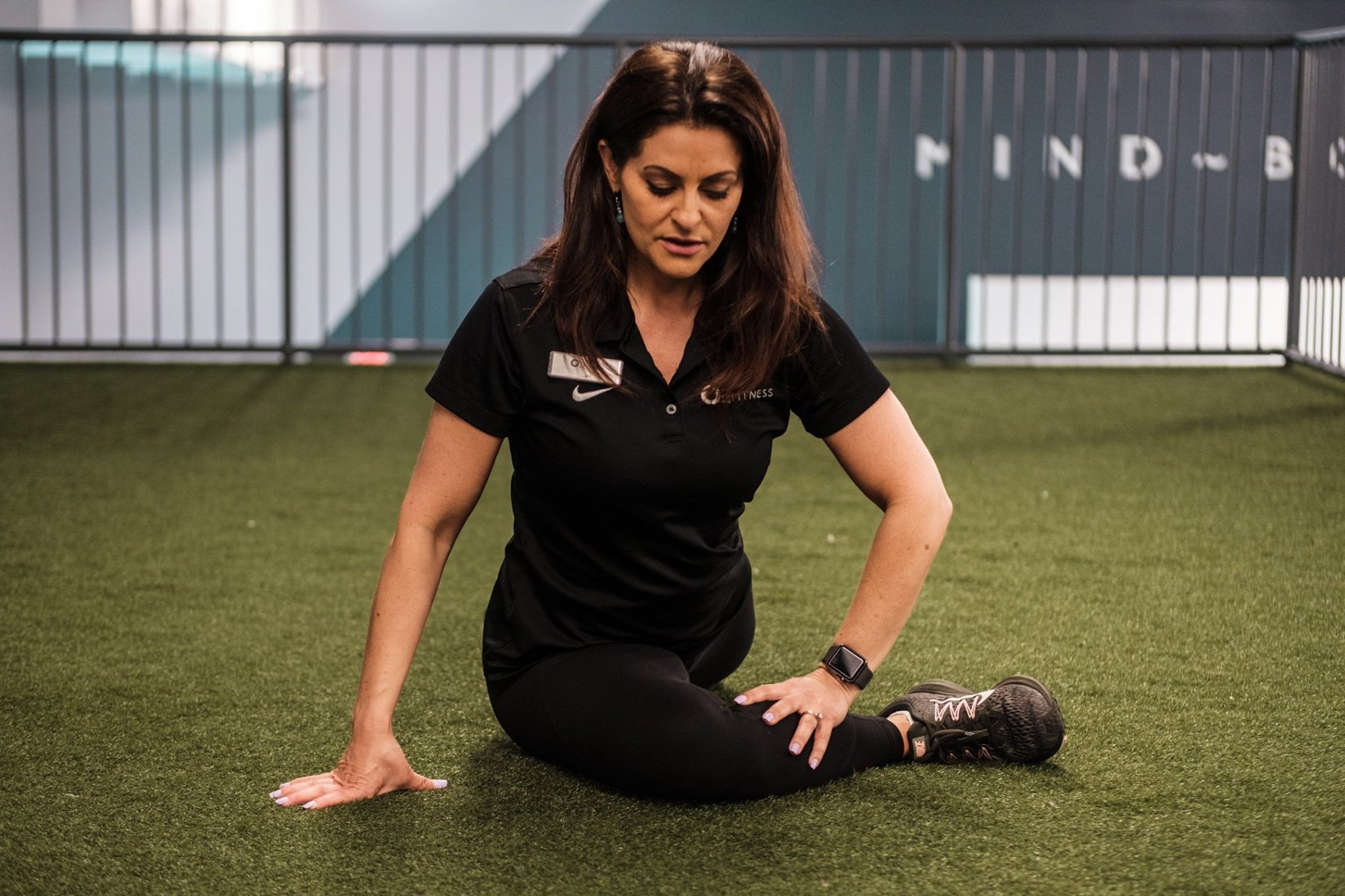
How long does it take to complete the IFPA Kettlebell Training Specialist Certification process?
The duration of the certification process may vary depending on the individual’s schedule and commitment to studying. On average, candidates can expect to complete the certification within a few months.
Is the IFPA Kettlebell Training Specialist Certification recognized internationally?
Yes, the IFPA Kettlebell Training Specialist Certification is recognized internationally. This allows certified professionals to pursue career opportunities not only within their home country but also abroad.
What is the renewal process for maintaining the IFPA Kettlebell Training Specialist Certification?
To maintain the certification, individuals must renew every two years. This involves continuing education, such as attending workshops, conferences, or completing additional courses, to stay up-to-date with advancements in kettlebell training.
For the IFPA Kettlebell Training Specialist Certification, let’s address the specific questions:
What is the IFPA Kettlebell Training Specialist Certification?
The IFPA Kettlebell Training Specialist Certification is a focused program designed to equip fitness professionals with the skills and knowledge necessary to effectively incorporate kettlebell training into their clients’ fitness routines. This certification covers kettlebell exercise techniques, safety protocols, program design, and the biomechanics of kettlebell movements. It’s suitable for personal trainers, strength and conditioning coaches, and group fitness instructors who want to leverage the versatility and effectiveness of kettlebells to enhance strength, power, endurance, and flexibility in their clients.
Is the IFPA Kettlebell Training Specialist Certification worth it?
Investing in the IFPA Kettlebell Training Specialist Certification is highly beneficial for fitness professionals looking to diversify their training modalities and offer more dynamic, functional workout options. Kettlebell training is renowned for its efficiency in building functional strength and improving overall fitness, making this certification valuable for trainers who wish to provide comprehensive, results-driven training programs.
Who should get the IFPA Kettlebell Training Specialist Certification?
This certification is ideal for:
- Personal trainers aiming to broaden their expertise and incorporate kettlebell exercises into personalized training programs.
- Strength and conditioning coaches looking to enhance athletic performance through the unique benefits of kettlebell training.
- Group fitness instructors interested in creating engaging, high-intensity kettlebell classes.
- Rehabilitation specialists seeking to integrate kettlebell exercises into recovery programs for improved mobility and strength.
How difficult is the IFPA Kettlebell Training Specialist exam?
The IFPA Kettlebell Training Specialist exam is challenging, reflecting the technical proficiency and comprehensive understanding required to safely and effectively coach kettlebell exercises. Success in the exam depends on a candidate’s grasp of kettlebell mechanics, exercise programming, and safety considerations, necessitating thorough study and practical experience with kettlebells.
How credible is IFPA?
The IFPA is recognized for its commitment to quality education and evidence-based practices in the fitness industry. The Kettlebell Training Specialist Certification is backed by IFPA’s rigorous standards, ensuring that certified professionals are well-equipped with current, effective training methodologies, enhancing the organization’s credibility and the value of its certifications.
How many people pass the IFPA Kettlebell Training Specialist exam on the first try?
While specific pass rate statistics for the IFPA Kettlebell Training Specialist exam are not publicly available, candidates who dedicate themselves to understanding the intricacies of kettlebell training and engage in practical application are generally more likely to succeed on their first attempt.
What is the pass rate of the IFPA Kettlebell Training Specialist exam?
Pass rate details for the IFPA Kettlebell Training Specialist exam are not disclosed by the organization. However, a thorough engagement with the certification materials and hands-on kettlebell training experience can significantly improve a candidate’s likelihood of passing the exam.
How does IFPA compare to other organizations for kettlebell training certification?
When comparing IFPA to other organizations offering kettlebell training certifications, it’s essential to consider the depth of the curriculum, the emphasis on safe and effective training techniques, and the overall industry recognition of the certification. The IFPA’s Kettlebell Training Specialist Certification stands out for its comprehensive approach, combining foundational principles with advanced techniques, making it a valuable credential for fitness professionals.
Is the IFPA Kettlebell Training Specialist test open book?
Typically, the IFPA Kettlebell Training Specialist exam is conducted without the use of reference materials, challenging candidates to demonstrate their mastery of kettlebell training principles and the ability to apply this knowledge in creating safe, effective workout plans.
How many times can you fail the IFPA exam?
IFPA provides candidates with the opportunity to retake the Kettlebell Training Specialist exam if they do not achieve a passing score on their initial attempt. The organization’s policies regarding exam retakes, including any applicable fees and waiting periods, should be reviewed directly with IFPA for the most accurate information.
What can I do with an IFPA Kettlebell Training Specialist Certification?
With this certification, you can:
- Introduce kettlebell training into client workouts to enhance strength, flexibility, and cardiovascular health.
- Develop specialized kettlebell classes that cater to various fitness levels, providing a challenging and engaging group fitness experience.
- Incorporate kettlebells into athletic training programs to improve performance and reduce the risk of injury.
- Educate clients on the benefits of kettlebell training and proper technique to ensure safety and effectiveness.
How much does the IFPA Kettlebell Training Specialist Certification cost?
The pricing for the IFPA Kettlebell Training Specialist Certification can vary based on factors like course materials, workshops, and the examination fee. Interested individuals are encouraged to consult IFPA’s official resources for the most current and detailed pricing information.
What are the best personal training certifications?
Choosing the best personal training certifications involves evaluating each program’s comprehensiveness, accreditation, and relevance to your training philosophy and client goals. Alongside the IFPA Kettlebell Training Specialist Certification, other highly regarded certifications include:
- The NASM Certified Personal Trainer for its well-rounded approach to fitness programming.
- The ACE Certified Personal Trainer, known for its focus on holistic wellness and client-centered training.
- The NSCA Certified Strength and Conditioning Specialist, ideal for those concentrated on enhancing athletic performance.
- The ACSM Certified Personal Trainer, valued for its strong scientific foundation in health and fitness.
Selecting the most suitable certification depends on your specific training focus, whether it’s general fitness, specialized modalities like kettlebell training, or athletic conditioning, ensuring you’re equipped to deliver high-quality, effective training sessions.
